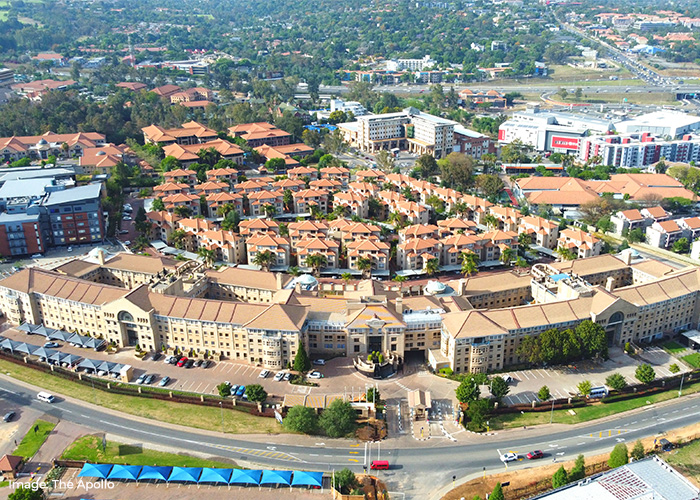The Future of Housing
As urbanisation intensifies and city centres evolve, the adaptive reuse of office blocks into residential apartments has emerged as a promising solution to address multiple challenges. This transformative approach to repurposing underutilised spaces enhances urban living, and ease the strain on housing demand. Two striking examples of this trend are The Apollo in Sandton and The Atlas in Sunninghill. These two projects epitomise the future of housing and urban development.
Global Trend
The Apollo and The Atlas showcase the growing global trend of converting obsolete office blocks into vibrant residential spaces. Previously serving as commercial hubs, these buildings have now been given a new lease on life, contributing to a more balanced and sustainable urban landscape.
Demand and Supply
One of the main drivers behind the conversion of office blocks into residential apartments is the increasing demand for housing in city centres. Traditional housing development in these areas often faces limitations due to land scarcity and zoning regulations. Strategically positioned in prime locations, office spaces presents a unique opportunity.
Environmental Benfits
The repurpose of existing buildings instead of constructing new ones, allows developers to reduce the environmental impact and save valuable resources. This aligns with the global movement towards sustainable development and greener living. A great spinoff with these developments is neighbourhood rejuvenation. The transformation of these buildings breathes new life into urban areas, attracting new residents, and fostering a sense of community that couldn’t be obtained before.
The Apollo stands as an exemplar of this transformation. Once a lacklustre office complex, it has been skilfully redesigned into a modern residential building featuring sleek apartments with state-of-the-art amenities. The strategic location provides residents with unparalleled access to the vibrant business district, public transportation, and recreational facilities. Likewise, The Atlas showcases how architectural ingenuity with reimagine underutilised spaces. The building’s conversion has not only met the demand for housing but has also elevated the neighbourhood’s appeal by making a homogeneous urban living environment.
Adhering to regulations
Despite the numerous advantages, office-to-residential conversions are not without challenges. Retrofitting existing structures can be complex and costly, as the buildings must comply with stringent building codes and safety regulations. Additionally, developers must carefully consider the needs and preferences of future residents to ensure functional and desirable living spaces. Governments and municipalities also play a pivotal role and need to offer incentives and streamline regulations to encourage more developers to undertake such projects.
Innovative Shift
The conversion of office blocks into residential apartments marks an exciting shift in urban development and housing solutions. The Apollo in Sandton and The Atlas in Sunninghill represent beacons of innovation and sustainability in this transformative trend. As cities continue to evolve and grow, adaptive reuse projects will become an integral part of shaping the future of housing. Thus creating more liveable, sustainable, and vibrant urban environments for generations to come.




